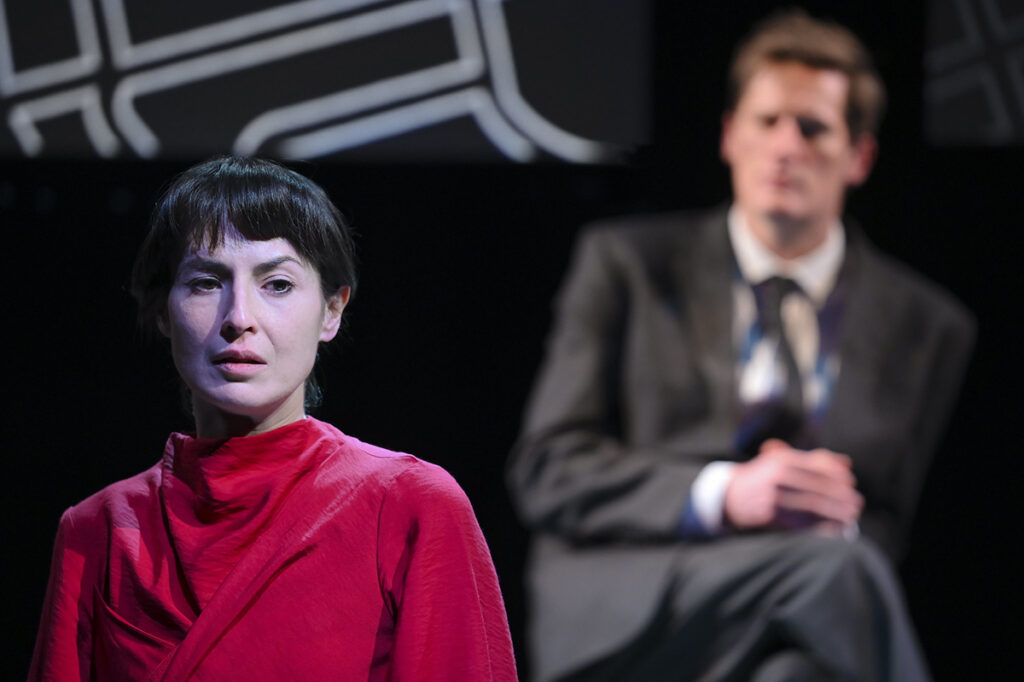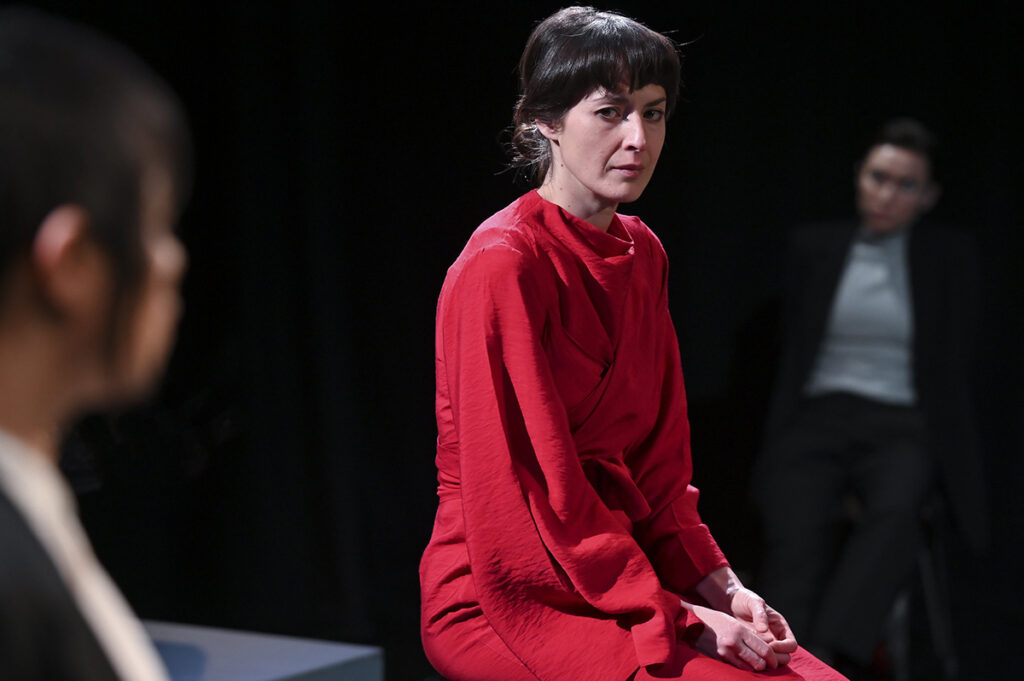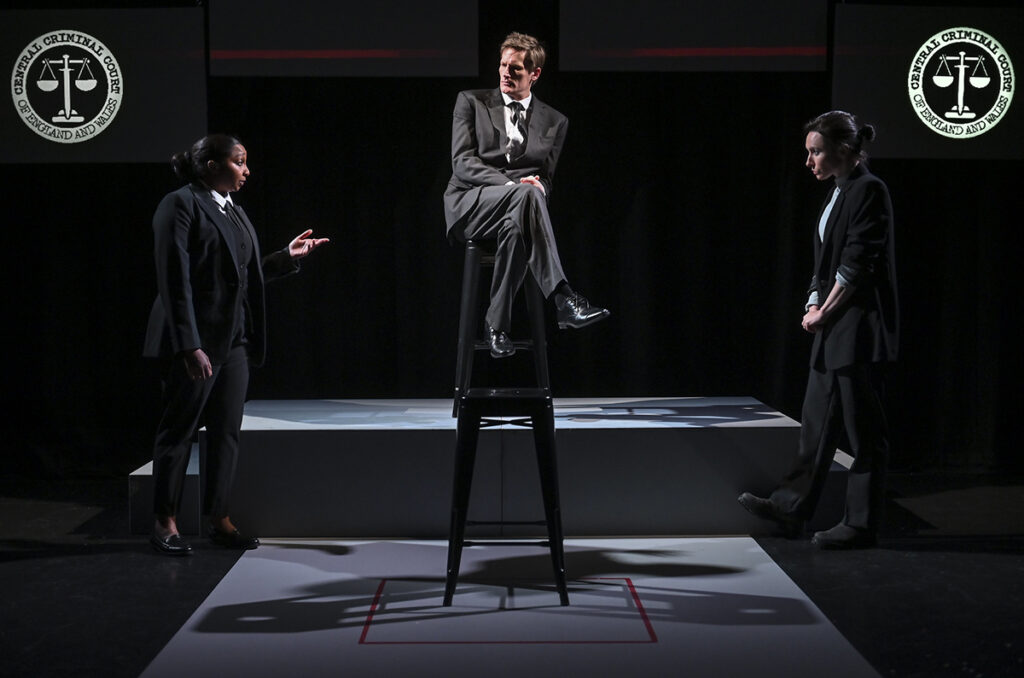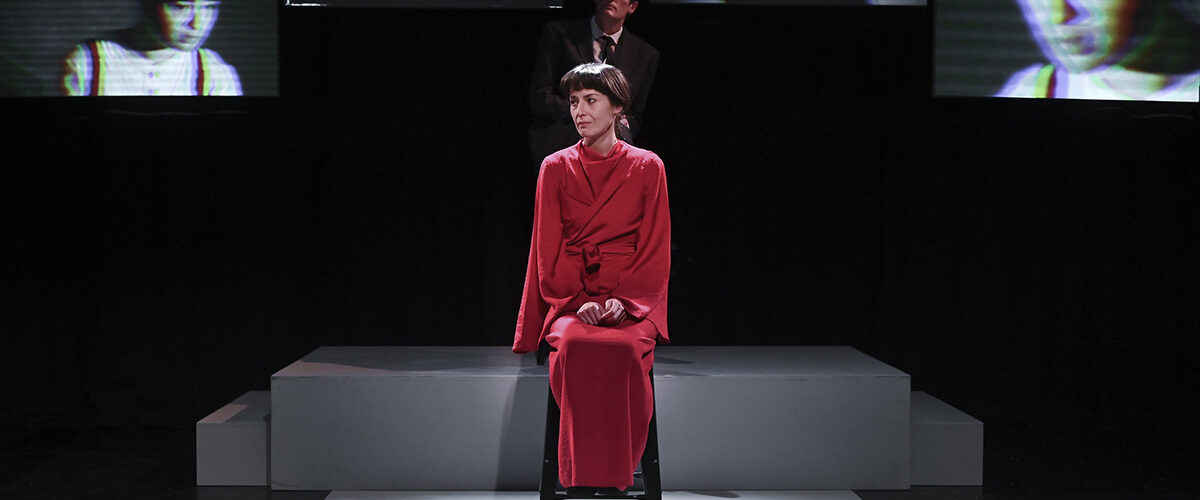Crowded Room’s Edith reconstructs the 1922 trial of Edith Thompson, one of the last women to be executed in the UK. Directed by Madelaine Moore, written by Harriet Madeley and developed with women at HMP Styal, this production uses court transcripts from the trial to expose the bias that condemned Edith for the murder of her husband.

A cast of just five performers – four of whom are women – recreate a large ensemble of characters, from the policeman who discovers Edith with her husband’s body to the mother of Freddie Bywaters, Edith’s lover. Interestingly, the only male performer in the cast plays just two parts – Edith’s husband Percy and the judge.
The cast are costumed in minimal black and white suits, blank slates that give no indication of time period or gender – with the exception of Edith, whose vivid red dress works to depict her as both flamboyant artist and provocative adulteress. For most of the play, she is seated centre stage under the literal and metaphorical glare of a bright spotlight, while the other characters move around her.

On the night I attended, the performance unfortunately started 40 minutes late, which I assume was down to technical issues. Audio and video content are integral to this production, with recordings of news reports on the trial, statements to the police and extracts of Edith’s letters all interwoven with the actors’ dialogue. The shifts between the two are sometimes clunky, but mostly the cast handle the courtroom jargon and rapid character switches with confidence.
The audience is posited as the jury of the trial, having to rise from our seats at the entrance of the judge. Regular three minute ‘recesses’ occur throughout the performance, to give the audience an opportunity to discuss what we’ve just witnessed and – perhaps more importantly – to refresh our concentration spans. Ultimately though, the audience are given no agency as a jury because the verdict is delivered via a recorded sound clip – perhaps a performer planted in the audience would be more effective at creating a genuine courtroom feel.

The verdict is no surprise either, with everything mirroring society’s misogynistic determination to pin Edith as the guilty party: the growing, nervous desperation of her defence counsel, the openly – almost comically – prejudiced judge, and the reporters that stress the youth and comparative innocence of Freddie, the actual murderer, while declaring the accused to be a “shocking little piece of rubbish.”
Edith not only brings a historical case deserving of re-examination back into the spotlight, but by inviting us to question how she might fair a century later, the play puts modern day attitudes to women on trial. How far we’ve come is left to the audience to determine.
Edith is at The Lowry, Salford from 1-4 February 2023.





